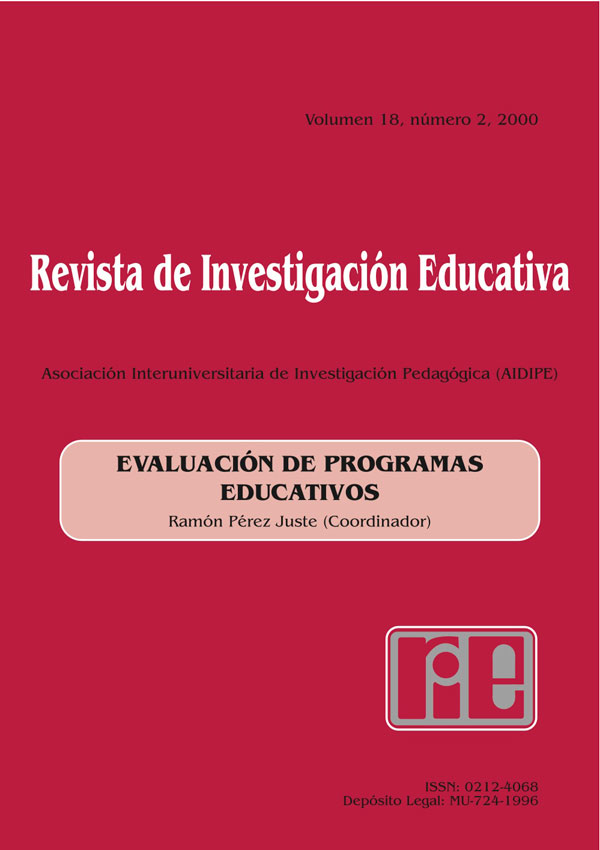Evaluación de programas para alumnos de alta capacidad: algunos problemas metodológicos
Abstract
This papar is based on the premise that highly gifted students require a differentiated education and thus the need for the development of programs geared toward the special needs of these students. Research carried out principally in English-speaking countries offers abundant evidence in this regard.
Programmes are faced with a peculiar set of evaluative problems since, if they are to be continued, their effectiveness must be constantly demonstrated. Ongoing evaluation is a guarantee of the continued support of such programmes, wherever they might be in use.
Some of the methodological problems encountered in evaluation are considered, particularly those related to measurement and design. On the other hand, although problems of a unique kind are frequently found in those programmes designed for a specific population, they invariably have many characteristics in common with the general methodological issues. Although the methodology of evaluation presents problems which we have analysed, it is also true that it offers reasonably adequate guidelines for evaluating the effectiveness of such programmes.
Downloads
-
Abstract767
-
PDF (Español (España))661
-
Validez interna y externa...661
The articles and scientific documents published in RIE abide the following conditions:
1. The Servicio de Publicaciones de la Universidad de Murcia (the publisher) has the property rights (copyright) of all the documents published and allows the reuse under the user’s license indicated in point 2.
2. All documents are published in the digital edition of RIE under a Creative Commons Reconocimiento-NoComercial-SinObraDerivada 4.0 Internacional. (legal document) license. These documents can be copied, used, distributed, communicated and explained publicly if: i) the author(s) and its original source of publishing (magazine, publisher and URL of the document) are cited; ii) it is not used for commercial purpose; iii) the existence and the specifications about this license are mentioned.
3. Auto-archive’s conditions. The authors are allowed and encouraged to digitally distribute the pre-print versions (a version before evaluation) and/or post-print (a version that it is already evaluated and accepted to its publication). This promotes circulation and distribution earlier and can increase the citations and significance within the academic community.










